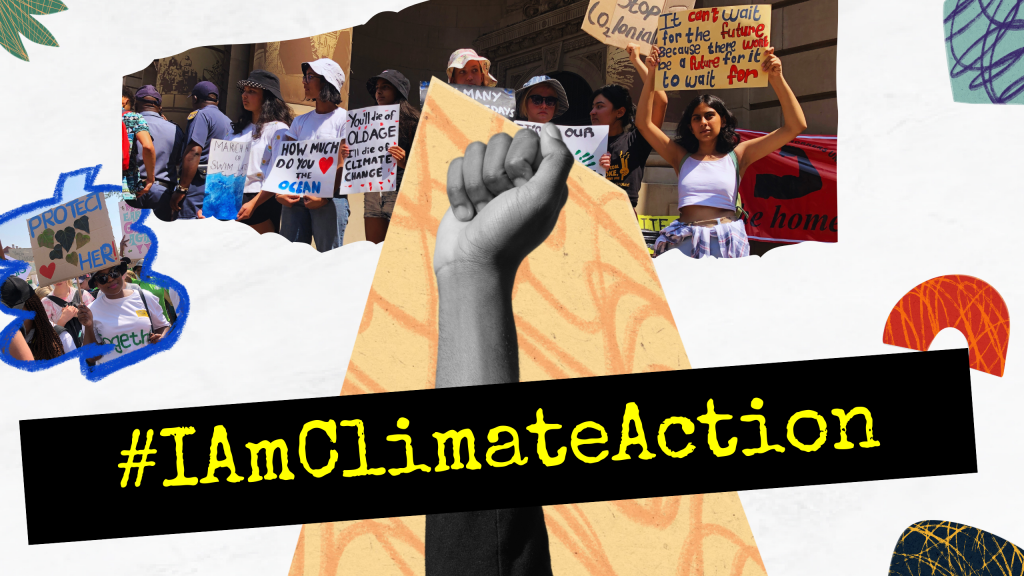
we need to talk about climate change.
Thousands of people in South Africa are already suffering from the catastrophic effects of extreme weather disasters that are being exacerbated by climate change – from prolonged drought in Nelson Mandela Bay to the deadly floods in KwaZulu-Natal.
While we largely understand climate change through the impacts it will have on our natural world, it is the devastation that it is causing and will continue to cause for humanity that make it an urgent human rights issue. Its effects will continue to grow and worsen over time, creating ruin for current and future generations.
So, what is climate change?
The United Nations refers to climate change as “long-term shifts in temperatures and weather patterns”. Although the planet’s climate has consistently been changing over geological time, with significant fluctuations in global average temperatures, this current period of warming is occurring more rapidly than any past events.
We are doing this through fossil fuels, agriculture and land-use and other activities that drive climate change. Greenhouse gases are at the highest levels they have ever been over the last 800,000 years. This rapid rise is a problem because it’s changing our climate at a rate that is too fast for living things, like humans, to adapt.
There is overwhelming scientific consensus that global warming is mostly human-made by our activities that release heat-trapping gases – commonly referred to as greenhouse gases – to power our modern lives: climate scientists have come to this conclusion almost unanimously.
Why is climate change a human rights issue?
Human rights are intimately linked with climate change because of its devastating effect on not only the environment but our survival and wellbeing. So, in addition to threatening our very existence, climate change is having harmful impacts on our rights to life, water, health, food, housing and livelihoods. See below for a more detailed overview:
Why do we need to stop climate change?
Fighting the climate crisis gives us a chance to protect the wellbeing and survival of people by ensuring a right to a healthy environment. This will give us an opportunity to safeguard human rights, including access to safe, sufficient and reliable water now and for generations to come.
Because we are all born with fundamental human rights that deserve equal protection. Yet these rights are under grave threat from climate change. And while climate change threatens all our lives in some way, people who experience discrimination are among those likely to be worst affected. We are all equally deserving of protection from this universal threat.
How you can take action with Amnesty International South Africa
We work with individuals, communities, our activist networks and partners across South Africa and the world to mobilise and organise for change. We use our collective voice to demand action from the government and push for changes that ensure every person in South Africa has access to their basic human rights. This could be hitting the streets in non-violent protest action or becoming a member of our university or community chapters. To learn more and get involved, click here.
Our work on climate changes includes standing up for human rights in the Paris Agreement on climate change, contributing to stronger human rights standards on climate change, and supporting environmental groups as they put forward human rights arguments.
We work with a variety of different groups to mount pressure against governments and corporations which are obstructing progress.
We litigate and use national and regional human rights mechanisms as additional tools to keep up the pressure.
We provide access to information through our human rights education courses to ensure every person in South Africa is equipped with the knowledge to hold the government to account and demand a better future. Take our free course on climate change here.
Our demands
Amnesty is calling for governments to:
-Do everything they can to help stop the global temperature rising by more than 1.5°C.
-Collectively reduce their greenhouse gas emissions to absolute zero before or by 2050. Richer countries should do this faster. By 2030, global emissions must be half as much as they were in 2010.
-Stop using and producing fossil fuels (coal, oil and gas) as quickly as possible.
-Make sure that climate action is done in a way that does not violate anyone’s human rights, and reduces rather than increases inequality
-Make sure everyone, in particular those affected by climate change or the transition to a fossil-free economy, is properly informed about what is happening and is able to participate in decisions about their futures.
-Work together to fairly share the burden of climate change – richer countries must provide financial and technical support to people in developing countries who have suffered and will continue to suffer losses and damages caused by the climate crisis.
-Governments must put measures in place to increase climate literacy across society.

